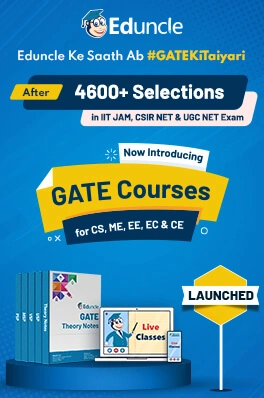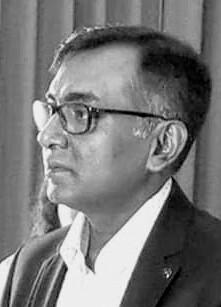Time management is very much important in IIT JAM. The eduncle test series for IIT JAM Mathematical Statistics helped me a lot in this portion. I am very thankful to the test series I bought from eduncle.
Nilanjan Bhowmick AIR 3, CSIR NET (Earth Science)
Shuvadip Das posted an Question
- UGC NET
- English
If for the first time foucault introduced the power-knowledge concept in madness and civilization (1961), then after that in discipline and punishment (1975), h
If for the first time Foucault introduced the Power-knowledge concept in Madness and Civilization (1961), then after that in Discipline and Punishment (1975), he foucuses on power-knowledge equation?
- 0 Likes
- 6 Comments
- 0 Shares
-
![comment-profile-img]() >
>
-
Payal
Foucault’s studies seem to range widely, they all tend to focus on how knowledge of human beings is inextricably connected to power over them. For Foucault, the many modern concepts and practices that attempt to uncover “the truth” about human beings (either psychologically, sexually, or spiritually) actually create the very types of people they purport to discover. For Foucault, power and knowledge are not seen as independent entities but are inextricably related—knowledge is always an exercise of power and power always a function of knowledge. Perhaps his most famous example of a practice of power/knowledge is that of the confession, as outlined in History of Sexuality. Once solely a practice of the Christian Church, Foucault argues that it became diffused into secular culture (and especially psychology) in the eighteenth and nineteenth centuries. Through the confession (a form of power) people were incited to “tell the truth” (produce knowledge) about their sexual desires, emotions, and dispositions. Through these confessions, the idea of a sexual identity at the core of the self came into existence (again, a form of knowledge), an identity that had to be monitored, cultivated, and often controlled (again, back to power). It is important to note that Foucault understood power/knowledge as productive as well as constraining. Power/knowledge not only limits what we can do, but also opens up new ways of acting and thinking about ourselves. Discipline Foucault argues that discipline is a mechanism of power that regulates the thought and behavior of social actors through subtle means. In contrast to the brute, sovereign force exercised by monarchs or lords, discipline works by organizing space (e.g. the way a prison or classroom is built), time (e.g. the set times you are expected to be at work each day), and everyday activities. Surveillance is also an integral part of disciplinary practices. In Discipline and Punish, Foucault argues that modern society is a “disciplinary society,” meaning that power in our time is largely exercised through disciplinary means in a variety of institutions (prisons, schools, hospitals, militaries, etc.).
![eduncle-logo-app]()
Thank you
-
![comment-profile-img]() >
>
Deb dulal halder Halder
![best-answer]()
it is from this point of view that panopticon beoxmes an important concept in Foucault. panopticon is just a metaphor for all surveillance devices and models used by the state machinery
-
![comment-profile-img]() >
>
Deb dulal halder Halder
![best-answer]()
basically Foucault is challenging the western Baconian parameter that knowledge is power. what is more significant to understand is that power or the powerful people shape the contours of knowledge and legitimizes by garnering a false consciousness about it from the masses.
-
![comment-profile-img]() >
>
Shuvadip das Das
Ok. Now the concept is clear.
-
![comment-profile-img]() >
>
Deb dulal halder Halder Best Answer
the power knowledge equation is a dominant theme of all his writings. how the west garnered consent for producing certain knowledge whether regarding madness or criminals or texts is based on how the powerful ( the ruling class) wanted the shape the knowledge in a particular way so that it benefits them.
Do You Want Better RANK in Your Exam?
Start Your Preparations with Eduncle’s FREE Study Material
- Updated Syllabus, Paper Pattern & Full Exam Details
- Sample Theory of Most Important Topic
- Model Test Paper with Detailed Solutions
- Last 5 Years Question Papers & Answers
Sign Up to Download FREE Study Material Worth Rs. 500/-










 >
>









Deb dulal halder Halder
there is a book Paul Rainbow The Foucault Reader. consult it. if you don't get the book let me know
Sir, if you have a pdf copy, then send me.
send me your email id